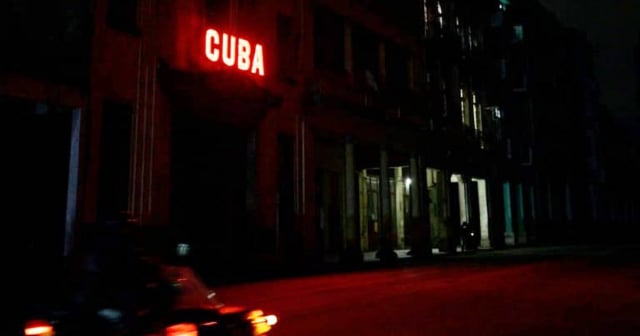Arlety Llerena Martínez, the mother of Jorgito Reina, the Cuban boy with leukemia who has been waiting for nearly a year for a humanitarian visa to travel to the United States, survives as best as she can through the total, partial, and massive blackouts that have kept Cubans on edge since Friday, October 18.
Mother and son are still waiting to be able to leave Cuba as soon as possible so that the 7-year-old can undergo a bone marrow transplant at Nicklaus Children Hospital in Florida, which has accepted his case.
In an interview granted to CiberCuba, Arlety Llerena explained that what she finds hardest about the blackouts is the lack of water, and that her son, having low defenses, needs very strict hygienic conditions. They have suffered so much that, as she recounts, they have faced problems even obtaining drinking water and have had to ask their neighbors because the child, in his condition, cannot drink just anything.
Jorgito Reina, who next week begins a phase of chemotherapy, is not aware, his mother adds, that his life depends on being granted a humanitarian visa to be able to travel as soon as possible to the United States, where his father lives. He does not know that time is running out against him.
In September, the child's father contacted the office of Republican Senator Marco Rubio to plead for assistance with the Immigration Service (USCIS), and the Cuban-American politician secured the agency's commitment to prioritize the review of Jorgito Reina's case.
As expected, Marco Rubio's intervention in the case did not please the Cuban regime, which staged a television show, interviewed the doctors treating the child, and used photos of the minor and his mother, taken without authorization from her Facebook, to address the case. In the interview, Arlety Llerena and her son's illness were discussed, and paradoxically, the main figures in the story were not invited to participate in the official media report.
Arlety Llerena explains that she found out about what happened like any other viewer, because her neighbors informed her that she had appeared on the news. In any case, her concerns at the moment are not political, but rather focused on her son's health.
The boy, in this interview with CiberCuba, states that the hardest part for him is not the chemotherapy or its side effects, but not being able to play with other children, not being able to go to a birthday party or to a park. His family makes an effort, but they know he is at great risk because, due to his illness, he is immunocompromised, which leads to, for example, injuries on his head that do not heal.
Although the child appears to be fine physically, the mother clarifies that one thing is how he looks and another is the sleepless nights he suffers from abdominal pain and poor digestion. "He takes more medicine than food and is bloated," she adds.
At the end of the interview with CiberCuba, Arlety Llerena appealed to USCIS to grant a humanitarian visa that would help her son regain his childhood, because while they wait, day after day, his health deteriorates further.
She is aware that she is not the only Cuban mother currently going through such a delicate situation, but she begs for her son, because the only hope she has to live is at Nicklaus Children Hospital in Florida.
What do you think?
COMMENTFiled under:
